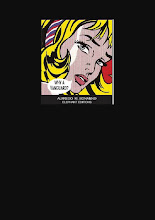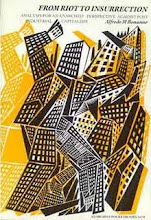INTRODUCTION
The numerous editions and translations of this pamphlet by Errico Malatesta all over the world have already demonstrated that its importance and relevance have been recognized universally.
Fra Contadini shares the modest tone of Malatesta’s other writings, more obvious here through the use of dialogue. It is in fact a chat which two peasants, one more politicised than the other, could very well have had in the north of Italy at the end of the last century. It manages to avoid the affectation which often harms literary works which–like this one–do not conceal their intent to educate, because in reality this is a didactic piece of work. Malatesta’s intention is to supply the anarchist movement (then the international socialist anarchist revolutionary party) with an agile instrument of propaganda for the peasants, small artisans, groups at that moment in the phase of proletarianisation. In other words for the starving masses who swelled the major Italian cities at the end of the last century drawn by the mirage of work in developing industry.
The Florence of 1884 had not changed much from that which had known the revolutionary work of Bakunin twenty years previously. Urbanisation had become a visible phenomenon, with the whole store of indescribable miseries for the poor people emarginated by the mechanism of capitalist exploitation. The phase of the building of the monopolies which the young Italian bourgeoisie accomplished with ease immediately after the Unification, was followed by a period of deflation. Poverty increased and wealth assumed a demonic glare in the rebellious dreams of the hungry.
Of Malatesta’s aims not the least is that of insurrection. The study of particular problems is never an end in itself. It is not a question of a utopian vision of what anarchist society will be after the social revolution, but of violent expropriation, the recurring reason which Malatesta continually takes our attention back to: the taking of wealth by the poor and their management of it in common.
"... We shall kindle the fire that is smoldering among the masses, take advantage of the discontent, the movements, the revolts, and strike a vigorous blow. We are not afraid, and soon the bourgeois catastrophe will go up in smoke and the reign of wellbeing begin." These words mark the maximum point of Malatesta’s analyses contained in the present pamphlet. The individual arguments faced, the various theoretical questions take on a different meaning and perspective in the light of this phrase. Taken individually problems such as production, machinery, work, planning, price mechanisms, Government, the State, the revolution considered in abstract terms, can each be treated with that detached perspective which so many comrades have substituted for the true meaning of anarchism. Here these problems take on a different order. Malatesta’s intent is not to convince a bourgeois liberal in the throes of his guilty conscience, he is not interested in getting into a learned argument with an economist who is still suffering indigestion from Marx, just as he is not interested in putting a sociologist into difficulty concerning the possibility of. social organisation without government or State. His aim is to convince the peasant, the worker, the emarginated "lumpen" proletarian reader, of the mechanism of exploitation and repression, of the system of ideological and political swindling with the aim of pushing them to rebel in the struggle against the class enemies, and ultimately, to insurrection. Whoever does not bear this objective in mind falsifies the profound meaning of this pamphlet. It is not possible to read truly revolutionary literature in the same key as one would read a sociological treatise.
The importance of an argument based on the limitations of the solutions indicated by Malatesta diminishes in this way. Clearly his singularly acute and lucid analyses such of those of monopoly and deflation find themselves among others whose contradictions Malatesta could not overcome, such as those concluding with the inevitability of an anarchist society, or where he foresees the need for planning, etc.. To "update" Malatesta’s work would be senseless, as would be any attempts of those who would highlight its contradictions in order to declare it "out of date". Taken as a whole it is still functional and admirably suited to the aim for which it was written: to push the most backward strata of the exploited to insurrection. It is an instrument of struggle, not a manual of anarchist theory. The clarity of vision which emanates from this pamphlet should culminate therefore not in more fruitless theorising but in practical insurrection and expropriation.
3 May 1981
skip to main |
skip to sidebar

Some writings of Alfredo Maria Bonanno in English, or almost

Alfredo Bonanno was arrested on October 1st 2009 in Greece, accused of concourse in robbery. With him, anarchist comrade Christos Stratigopoulos.
Here are a few translations and part translations of a small portion of Alfredo's writing. This is a work in progress, many of the translations are as yet incomplete. Open links to find more of Alfredo's work.
Alfredo Bonnano Released
Nov. 22 Alfredo Bonnano was sentenced to 4 years imprisonment (which practically means that with the time served so far and the fact that he is over 70years old HE IS RELEASED
Christos Stratigopoulos (who took responsibility for the action)
was sentenced to 8 years and 9 months with the Greek law will probably be released at the end 2011
BY ANY MEANS NECESSARY
LINKS
click on any of these labels to read text
- "Community" sickness
- 1981 - Editorial
- A Critique of Syndicalist Methods
- A few notes on Sacco and Vanzetti
- A few notes on the revolutionary movement in Italy
- A little man in Singapore
- A million jobs
- A question of class
- Affinity
- After Marx autonomy
- Albania Laboratory of Subversion (Introduction)
- Anarchism and the national liberation struggle
- Anarchists and action
- AND WE WILL ALWAYS BE READY TO STORM THE HEAVENS AGAIN (Against amnesty)
- ANTI-INSTITUTIONAL MOVEMENT
- Are we modern?
- Armed Joy
- ARMED STRUGGLE. SOME REFLECTIONS.
- Autonomous base nuclei
- beyond syndicalism
- Beyond workerism
- But what is the imaginary?
- Class War
- Comiso - Organizational document of the self-managed leagues
- Considerations on illegality
- Dissonances (Introduction)
- Elephant Editions 1986
- Excluded and included
- Farewell to claiming
- Feral Revolution (Introduction)
- FICTITIOUS MOVEMENT AND REAL MOVEMENT
- For an Antiauthoritarian Insurrectionist International - Proposal for a debate
- From riot to insurrection
- From the centre to the periphery
- Good technology
- Guerilla Extraordinary
- Habits and idols
- Hegel
- I know who killed chief superintendent Luigi Calabresi
- Illegality
- Illness and capital
- Informal organisation
- Insurrection
- Internationalism
- Introduction to Sabate
- Introduction to Anarchism and Violence
- Introduction to Bratach Dubh English edition of Malatesta's Fra Contadini
- Introduction to Insurrectionalist Anarchism
- Introduction to Strange Victories
- Introduction to The Conquest of Bread
- Involuntary aspects of voluntary work
- Let's destroy work
- LET'S DESTROY WORK. New introduction
- Let's keep our feet on the ground please
- Lightening Conductors and Stand-ins - more shots of non-news
- Lightning Conductors and Stand-ins
- Lightning Conductors and Stand-ins (cont.)
- Locked up
- Looking forward to self-management
- Loss of language
- More on internationalism
- National Liberation Struggle
- nineteen years on
- No more crises
- Non-news about drugs
- Non-news about racism
- Ode to the Uniform
- On Feminism
- One's life on the line
- Order and chaos
- Otto Ruhle (Introductory Note)
- OUR ROLE IN THE PRESENT CONFLICT
- Palestine mon amour
- Pantagruel anarchist review
- Pinelli
- Prison and Prisoners’ Struggles - Introduction
- Propulsive Utopia
- Quality and the factory
- Restructuring Capital and the new democracy
- Revolution - Violence - Antiauthoritarianism
- REVOLUTIONARY VIOLENCE
- Science and the social revolution
- Self-management
- Severino Di Giovanni in Argentina 1923-1931 by Osvaldo Bayer
- Social banditry
- SOME NOTES -
- Space and Capital
- Stirner
- Stop the City? From information to attack
- Strategy and Methods
- Streamlined production
- The "end" of the crisis
- The aesthetics of anarchism
- The anarchist tension
- The area of autonomy and the anarchist movement in Italy
- The armed wing of science
- The Cruise missile base at Comiso can be prevented
- The ethical bank
- The insurrectional project
- THE LANGUAGE OF TECNICS -
- The logic of insurrection
- The moral split
- THE NECESSARY DESTRUCTION -
- The priority of practice
- The refusal of arms
- The revolutionary project
- The revolutionary struggle
- The significance of an insignificant event
- The struggle for self-managed social space
- The tyranny of weakness
- The whole and the part
- The young in a post industrial society
- Theory and action
- Towards anarchist antimilitarism
- TOWARDS THE GENERALISATION OF ARMED STRUGGLE
- TRANSFORMATION IN THE WORLD OF WORK AND SCHOOL -
- TRUTH -
- Unemployment in Italy - How come everything doesn't explode?
- Untitled
- Violence and non-violence
- What are anarchists
- What can we do with anti-fascism?
- Why a vanguard?
- Why Insurrection
- World domination in a few words











